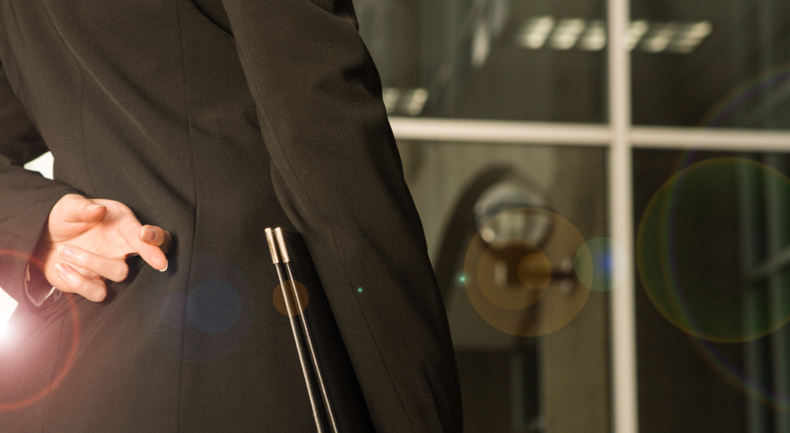Don't be a LinkedIn Liar

LinkedIn, work Facebook, the den of lies – whatever you like to call it, Link- wait, what? Den of lies? Yes. Sadly, according to one recent study, one in 10 LinkedIn posts is completely fabricated. Here’s why that’s such a bad thing.
The social image
Let’s be honest for a second: social media is a fantasy world. From the holiday photos and sultry selfies that make up instagram, to the beautiful homes and fashions that adorn our pinterest accounts, our online lives feature a severe amount of escapism. And it’s no different on the accounts we associated with our working lives.
And why do we do it? Because we’re vain. We want to portray an external image of ourselves to the world that makes us seem more attractive, more successful, and ultimately, content with our lives. We all know how unhealthy that seems.
But one thing that you’ll definitely see on LinkedIn that isn’t as prevalent on the other platforms are those blatant, stinking lies that can be spotted from a million miles off. Yes, Instagram has plenty of lies too, like that pouting shot helped along by 30 quid’s worth of makeup and serious filtering, but not as many cock and bull stories as you’ll find on LinkedIn.
My four year old son asked me why economies of scale aren't reflected in petrol prices. No he didn’t. You were on a plane once and Mark Zuckerberg gave you a golden piece of advice. No he didn’t. You turned down a Google internship because your favourite motivational quote reminded you about something about humility. STOP LYING.
Why lie?
Why do we do anything on Linkedin? Engagement. Linkedin has become the place to be the wise old raconteur, or the disruptive trailblazer, or the questioning expert. We love sharing stats, infographics, opinions and all that good stuff. But in a sea of stats and infographics and good stuff, it becomes difficult to stand out.
So what do we do, as humans? We invent things to make us seem more interesting, or more well-informed, or better. We just do it. And sadly, in our quest to come up with something to get more likes, more shares, and ultimately a sale, or a new job, or a new connection, we can’t stop ourselves from posting fibs.
The big picture
Like any lie, the problem gets worse as time goes on. We tell a little white lie about a silly LinkedIn story. But then someone calls us out on it and we have to expand the lie.
In the world of employer branding, this quickly becomes a serious problem.
Example: You read somewhere that candidates are interested in volunteering. You think that’s great, and write into your recruitment tool kit that everyone should be given three days every year, paid, to go and volunteer for a good cause.
You then post that detail on your job adverts, on your social media, and it gets discussed at interview stage.
But then the person joins, drawn in by the progressive cultural benefit, and never gets the chance to do their three days of volunteering. We’re too busy, I can’t afford to pay those three additional days, Oh we never thought anyone would actually want to do that.
Seems trivial, but that attitude extends to everything else suddenly. Everything else on that menu of perks and benefits is suddenly up for questioning, because the candidate was told a lie to get them to join the organisation.
So just stop it
That’s a small example, but there are thousands of organisations out there guilty of telling fibs to get candidates on board and overselling their perks, benefits, bonuses, salaries and company performance to help them stand out from the crowd, just like we do at a personal level on LinkedIn.
Yes, it may seem like a quick fix to grab that candidate who has offers elsewhere, but unless you can follow through with it, don’t talk about it or offer it.
And you really don’t need to lie. Establish a strong list of cultural benefits that are set in stone, your unique selling points and some recent good news stories, and that’s literally it. Add in a strong employer brand, authentic tone of voice and stick to it, and you’ll start standing out from the liars out there. No need to make shaggy dog stories up, no need to try and stand out with outlandish claims.
Have you been persuaded to drop the lies? Or do you think it’s perfectly acceptable to bend the truth to gain more likes, follows and engagements? As always, we’d love to hear your thought on social media, so join the conversation on our LinkedIn page.




